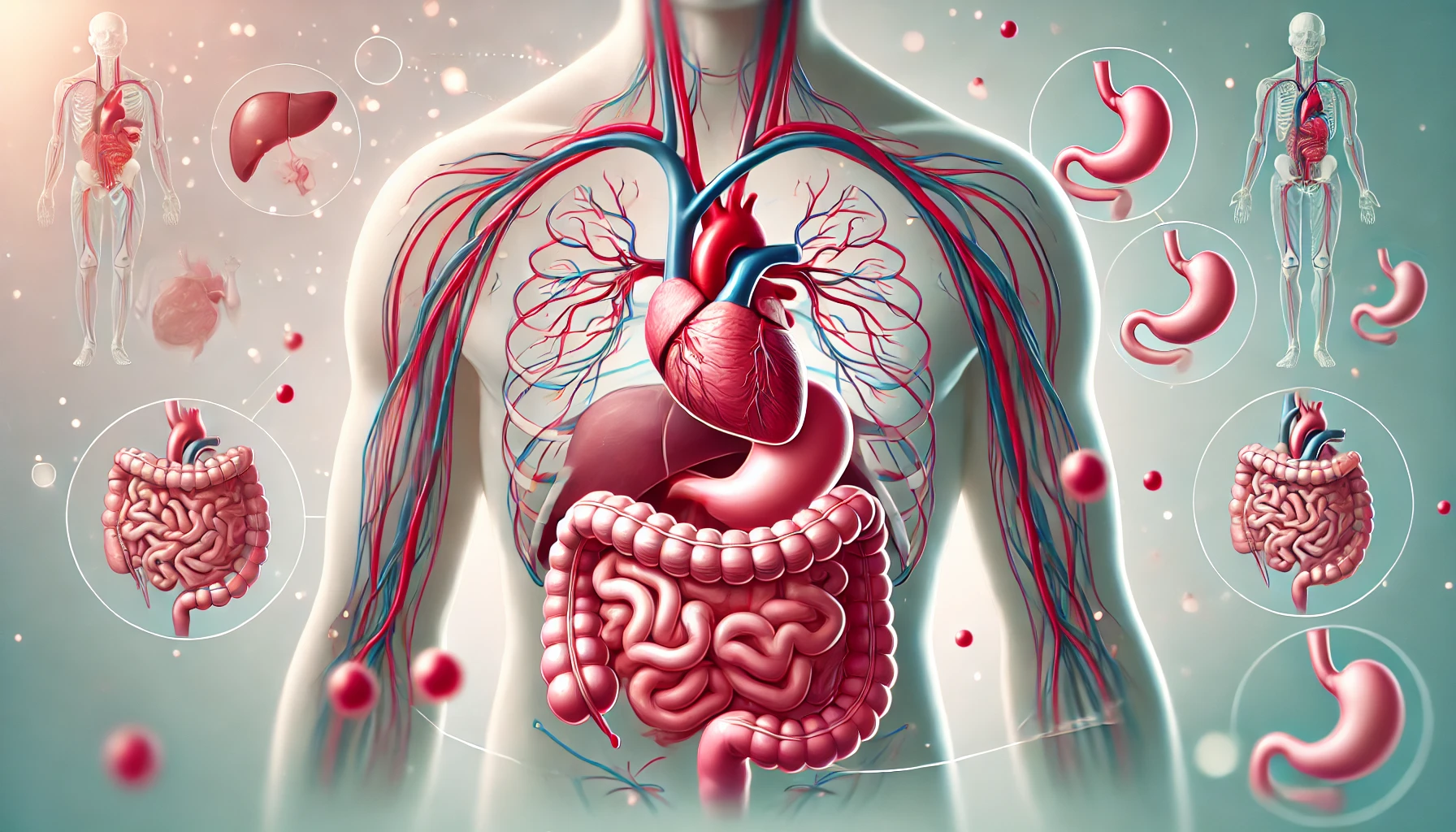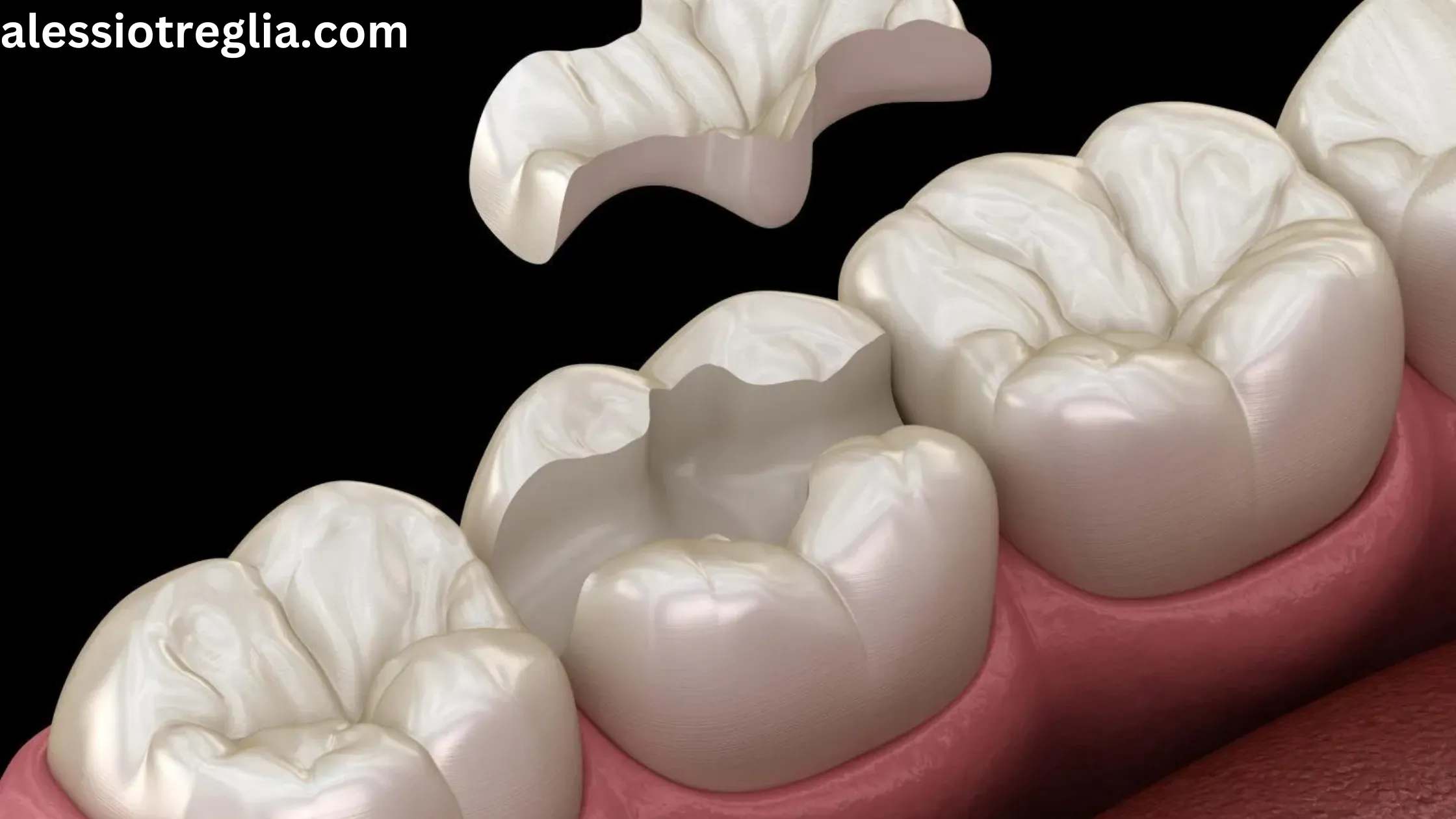How Long Does Heart Rate Stay Elevated After Eating? Shocking Facts!
Table of Contents
Have you ever noticed your heart rate increase after enjoying a meal? It’s a common experience for many, but How Long Does Heart Rate Stay Elevated After Eating? This reaction is part of the body’s natural digestion process, but the duration and causes can vary. In this article, we’ll dive into How Long Does Heart Rate Stay Elevated After Eating, why it happens, how long it lasts, and when you might need to pay more attention to it. If you’re curious about why your heart beats faster after you eat, keep reading to discover the surprising details!
What Happens to Your Heart Rate After Eating?
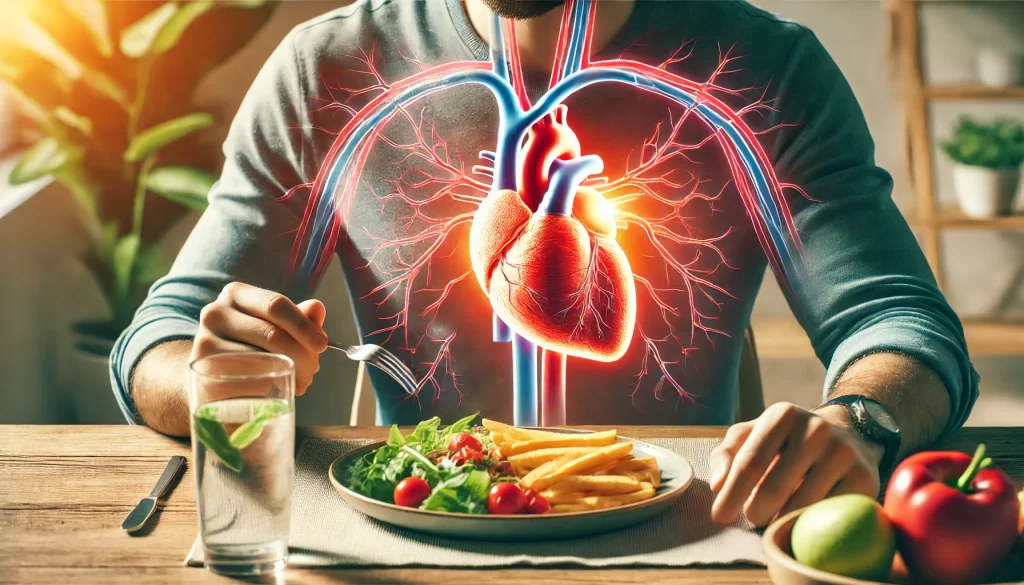
When you eat, your body doesn’t just digest food. It triggers a series of reactions, including a change in heart rate. After a meal, the body directs more blood to the stomach and intestines to help digestion. This process requires more effort from your heart, causing it to pump faster. But How Long Does Heart Rate Stay Elevated After Eating? The answer can depend on several factors, including your eating and overall health. Understanding How Long Does Heart Rate Stay Elevated After Eating can help you better manage your body’s meal response.
Why Does the Heart Rate Increase After Eating?
The Digestive Process and Heart Rate
The heart rate increases because your digestive system requires more blood flow. When you eat significantly larger meals or meals rich in fats and carbohydrates, the body sends more blood to your digestive organs. This demand leads to an increase in your heart rate. But How Long Does Heart Rate Stay Elevated After Eating? A faster heartbeat helps transport oxygen and nutrients where they are needed most, but How Long Does Heart Rate Stay Elevated After Eating depends on the size of the meal and the types of food consumed.
Foods That Affect Heart Rate
Certain types of food can cause a more significant increase in heart rate. For example, spicy foods, caffeine, and foods high in sugar or fat may cause a noticeable rise. How Long Does Heart Rate Stay Elevated After Eating? can vary depending on these types of foods. These foods stimulate the body in different ways, such as by triggering the release of adrenaline, which can further elevate heart rate. Understanding How Long Does Heart Rate Stay Elevated After Eating after consuming such foods can help you manage your dietary choices more effectively.
Postprandial Hypotension
For some people, a drop in blood pressure after eating, known as postprandial hypotension, can also cause an increase in heart rate. When blood pressure drops, the heart compensates faster to ensure enough blood flow to vital organs.
How Long Does Heart Rate Stay Elevated After Eating?
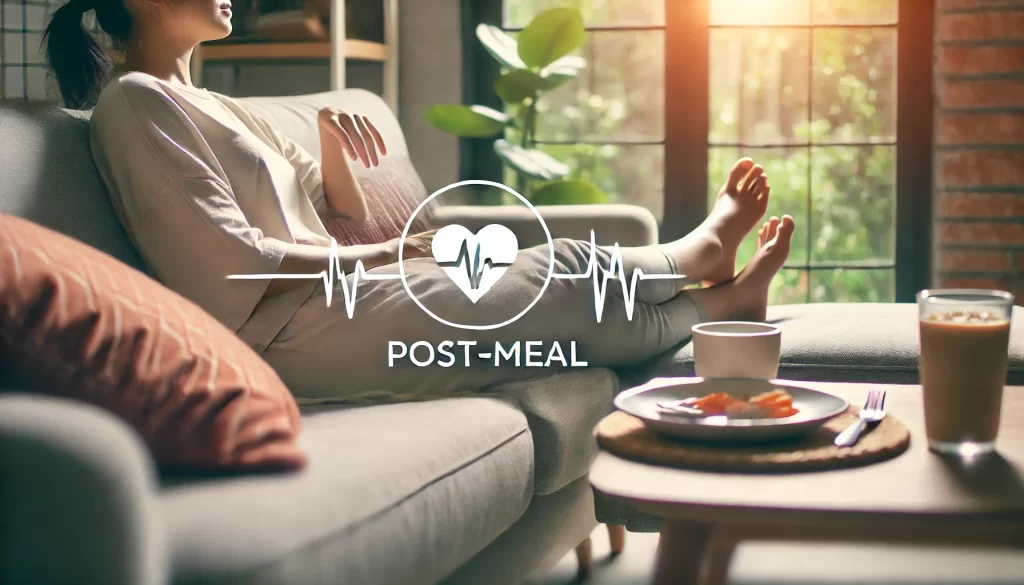
The exact time your heart rate stays elevated after eating can vary. On average, it remains higher for 30 minutes to an hour after a meal. Depending on the size of the meal and its contents, it may take up to two hours for the heart rate to return to normal.
Small vs. Large Meals
If you’ve had a small, light meal, your heart rate may only stay elevated for about 30 minutes. However, after a large or heavy meal, your heart rate could take up to two hours to settle back to its resting pace.
The Impact of Exercise After Eating
If you eat and engage in physical activity, your heart rate may stay elevated even longer. This is because your body works to digest food and support your activity. It’s usually recommended to wait at least 30 minutes to an hour after a meal before exercising to allow digestion to begin.
Factors That Influence Heart Rate After Eating
Type of Food Consumed
The type of food you eat plays a significant role in how long your heart rate stays elevated. Meals high in fats, sugars, and processed foods may cause your heart to work harder for extended periods. On the other hand, light and nutrient-dense foods like vegetables and lean proteins may result in only a slight increase in heart rate.
Personal Health Conditions
Certain health conditions, such as heart disease or diabetes, can influence how your body responds after a meal. People with these conditions may notice that their heart rate stays elevated for longer or increases more significantly than those without them. If you have a medical condition and notice your heart rate is consistently high after eating, it’s worth discussing with your doctor.
Stress and Emotions
Stress and emotions can also affect how long your heart rate stays elevated after eating. If you’re anxious or stressed while eating, your heart rate may remain higher for longer. Your body reacts to stress by releasing hormones like adrenaline, which naturally increases heart rate.
Should You Be Concerned About Elevated Heart Rate After Eating?
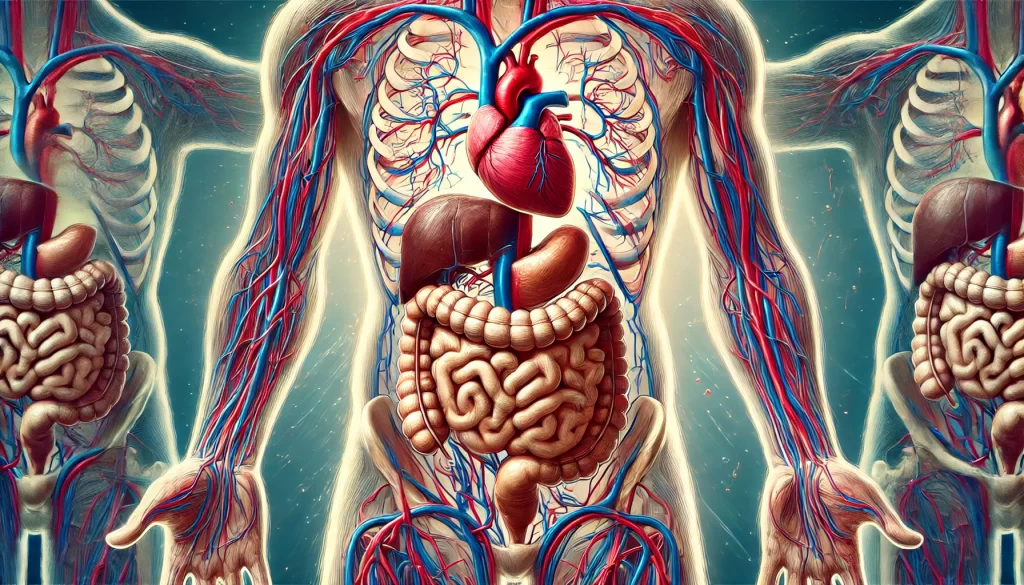
For most people, an increased heart rate after eating is a normal part of the digestive process and nothing to worry about. However, How Long Does Heart Rate Stay Elevated After Eating? If it extends for a prolonged period or is accompanied by other symptoms like chest pain, dizziness, or shortness of breath, you may need medical attention.
When to Seek Medical Advice
If you frequently notice that your heart rate remains elevated for more than two hours after eating, or if the increase is particularly intense, it’s essential to consult a healthcare professional. Persistent elevated heart rates could indicate an underlying issue, such as atrial fibrillation or other heart-related conditions.
Tips to Manage Your Heart Rate After Eating
If you’re concerned about your heart rate after eating, you can do a few things to manage it: understanding How Long Does Heart Rate Stay Elevated After Eating? can help you make better choices about meal size, food type, and post-meal activities.
Eat Smaller Meals
Large meals tend to place more demand on your heart. Eating smaller, more frequent meals can help minimize the increase in heart rate.
Choose Heart-Healthy Foods
Opt for foods that are easier on your body, such as lean proteins, vegetables, and whole grains. Avoid heavy, fatty, or overly processed foods that may put extra strain on your heart.
Also Read: How Long Does Croup Cough Last? Uncover the Shocking Truth!
Stay Hydrated
Drinking water before and after meals can support digestion, keep your body functioning efficiently, and help regulate your heart rate.
Avoid Strenuous Activity After Eating
Resting for a while after a meal gives your body time to digest. Avoid intense physical activity immediately after eating, as it can cause your heart rate to stay elevated for longer. How Long Does Heart Rate Stay Elevated After Eating? For most people, it’s a temporary effect that lasts between 30 minutes to two hours, depending on meal size, food type, and personal health. How Long Does Heart Rate Stay Elevated After Eating? varies from person to person, but awareness of this can help you manage it more effectively.
Understanding How Long does Your Heart Rate Stays Elevated After Eating will help you be more mindful of your body’s reactions and adjust your habits accordingly. While an increased heart rate after a meal is typically average, being informed helps ensure you maintain a steady, healthy heart rate. Keep an eye on your body’s signals and take steps to stay healthy.
